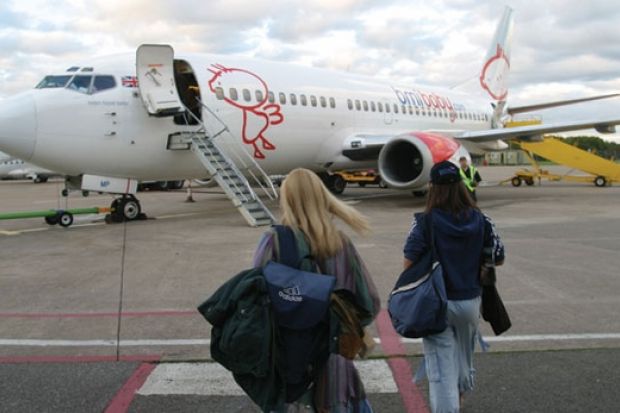Conservative backbenchers are pressuring the government over funding for European Union students at UK universities as the latest figures showed outstanding debt more than doubling in a year.
With the outlay on loans about to increase as tuition fees rise to a maximum of £9,000 from this autumn, figures on loan repayments by EU students have provoked further concerns about the sustainability of the new student loans system.
Undergraduates from EU countries outside the UK have the same access to fee loans as their domestic peers.
But while UK graduates have repayments automatically deducted from their payslips, the system relies on their EU counterparts providing earnings data upon their return home.
David Willetts, the universities and science minister, says in answer to a written parliamentary question submitted last month that at 31 March this year, "2,800 or 9 per cent of EU borrowers liable to repay were considered to be in arrears".
However, Student Loans Company data show another 33 per cent in the category "not currently repaying - further information being sought".
That means that 42 per cent of EU students liable to repay are not keeping up with repayments.
The SLC's data show that EU students' total outstanding debt was £111.1 million in 2010-11 - up from £49.2 million the previous year.
Mr Willetts was asked for EU repayment data by Matthew Offord, Conservative MP for Hendon.
Peter Lilley, the Conservative MP for Hitchin and Harpenden and a former secretary of state for social security, has also asked a series of questions about EU students.
There were 80,320 EU undergraduates at UK universities in 2010-11 among a total student population of around 1.7 million, according to the Higher Education Statistics Agency. Mr Lilley equated the number of EU students to "several universities' full".
"If they do not...repay - and enforcement may be difficult, which they may eventually realise - we will need to do something else to stop subsidising the rest of the EU by providing their brightest and best with free education," he told Times Higher Education.
No way to get them to pay
Bahram Bekhradnia, director of the Higher Education Policy Institute, said there was "no effective means of forcing EU students to pay".
He added: "As that realisation dawns increasingly on [them], I think more of them will...come here."
Mr Bekhradnia said the effect of EU student repayments on the new student loans system "may not be huge but it won't be trivial...The costs of the...system are already far higher than the government originally claimed. This will simply add to that cost."
The number of EU undergraduates at UK universities has increased by 56 per cent over the past 10 years (from 51,440 in 2001-02 to 80,320 in 2010-11, according to Hesa). That outstripped the rise in UK undergraduate numbers over the same period (14 per cent).
But figures released by the Universities and Colleges Admissions Service in June for 2012-13, the first year of higher fees, show that EU applications are down by 12.9 per cent - steeper than the 8.9 per cent fall among UK applicants.
Some universities planned to recruit additional students under the government's AAB policy by finding EU students with the equivalent qualifications. That route would have been particularly attractive to some post-1992 universities that might find it hard to attract extra UK students via AAB but want to boost numbers by other means.
However, Hefce closed off the route, which would have brought additional costs for the loans system, by confirming that the International Baccalaureate will be the only acceptable non-UK equivalent.
Despite this, Glynne Stanfield, a partner in the education group at law firm Eversheds, informed a recent Westminster Education Forum event that he had been told that "in Eastern Europe there are large numbers of students who have the relevant qualifications".
He added that he knew of "at least a couple" of universities that "are looking to that market to try and select and recruit those students into the UK market", given that they "fall outside the numbers cap".
